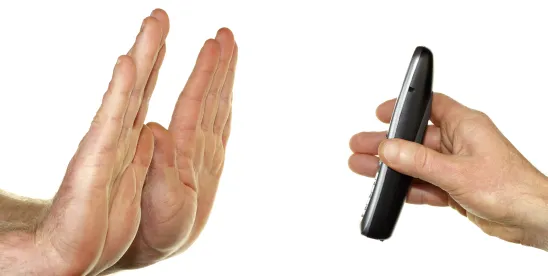Really interesting one here.
Common situation– consumer calls a business number (perhaps by mistake) and hangs up without leaving a message or interacting with anyone. The business wants to call the consumer back, but the consumer’s number is on the DNC list.
Now common sense says the business should be able to call back, but in TCPAWorld common sense don’t matter much.
Mercifully we finally have a court ruling that aligns with the outcome we’d all expect.
In Butera v. Sugarhouse Real Estate Group 2025 WL 1798968 (D. Utah June 30, 2025) a team of KW realtors was sued in a TCPA class action.
The Plaintiff argued the team was cold calling folks, but the allegations showed only a single cold call was made to the plaintiff’s number initially.
Plaintiff then called the number back to see who had called him and hung up. A little while later the KW folks called him back.
Plaintiff then sued arguing he had received two solicitation calls in violation of the TCPA’s DNC rules. But the Court threw out the case because the complaint established only a single solicitation call– but the TCPA required two calls in a 12 month period to be actionable.
In the Butera court’s view, the second call just didn’t count as an unsolicited call because the consumer had left a missed call for KW:
The court finds that the return call from KW was made in response to Mr. Butera’s own call and was not an “unsolicited” attempt to encourage the purchase or rental of goods or services. It is common in this day and age for a person to return a “missed call” that is displayed on their phone, and thus, the court concludes that Mr. Butera’s call to KW without leaving a voicemail message—was an invitation for a return call. Thus, it cannot be considered a second “solicitation” under 47 U.S.C. § 227(c)(5). Had Mr. Butera left a voicemail message indicating that he was calling to find out who had called him and that he was on the DNC registry and did not want to be contacted again, the case would be different.
Interesting, no?
Now, importantly, neither the TCPA nor the implementing regs actually have an exception for “returning a missed call.” Instead the regs require either: i) prior express invitation or permission; or ii) an established business relationship formed by “a voluntary two-way communication” on the basis of either a) a transaction; or b) an inquiry or application.
I have to tell you, a sterile missed call does not appear to be prior express invitation or an inquiry or a transaction. So although I like the result here, I struggle to fit it into the rubric of the CFR. (Again, in TCPAWorld common sense doesn’t really matter.)
Still the Court concludes the claim is bogus because it could lead to fake lawsuits– and fact that is undeniable:
But in the present situation, Mr. Butera’s argument, taken to its logical extreme, would permit individuals who are registered on the DNC list to make return calls to businesses like KW that had perhaps made one unsolicited phone call, thereby eliciting a return call, and then alleging a violation of the TCPA. This manufactured liability is not the purpose of the TCPA. Undoubtedly, there are few—if any—individuals who are not annoyed by unsolicited sales calls, but the TCPA requires two unsolicited phone calls before a violation of the statute occurs. Here, the court cannot conclude that the second call was unsolicited, and therefore, Mr. Butera’s claim must be dismissed.
Love this. Right on the nose.
So there you go– in the view of at least one court a company can safely return a missed call without violating the TCPA.




 />i
/>i


